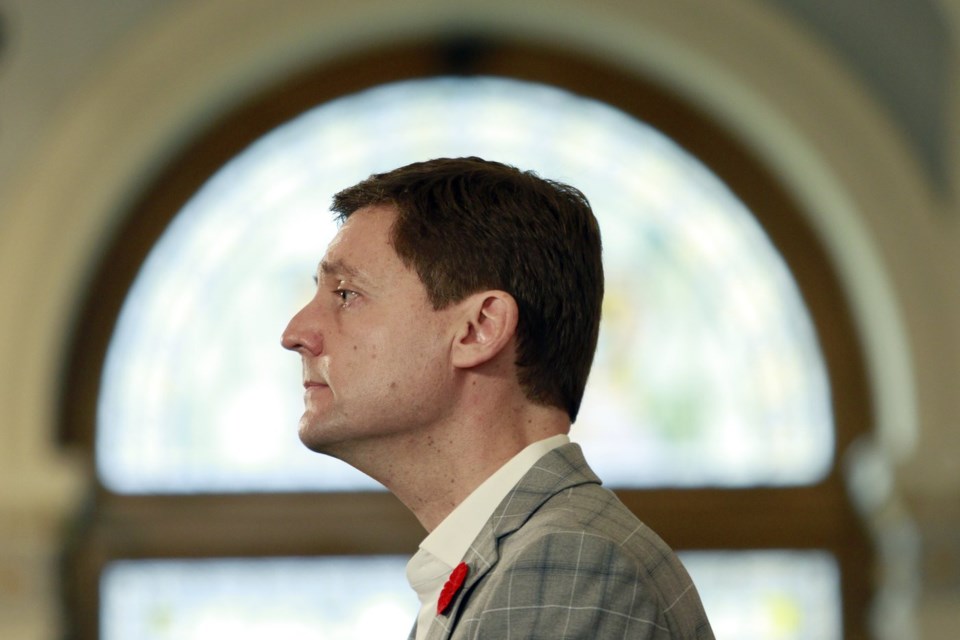RICHMOND — British Columbia Premier David Eby said Saturday that he is confident that recent Indigenous opposition to certain fast-tracking laws will not affect the province's ability to attract investment from Asian trade partners.
Eby said that international investors need to realize that they would need "strong partnerships with Indigenous people" and high environmental standards to have fast-moving projects in B.C.
He cited recent provincial work with First Nations in the northwest that outlined not only the limitations but the opportunities available to partner countries — as long as Indigenous consent and environment stewardship are achieved.
"The work that we're doing with Nations, for example, in the northwest involves doing that land use planning, identifying those areas that are no go zones, but also identifying those areas for development where things can move faster," Eby told reporters.
"So what we're seeing is Nations becoming full economic partners in the projects, proponents of the projects, as well as participating in the oversight to ensure land protection."
The premier made his comments on the eve of his departure on a 10-day trade mission to Japan, South Korea and Malaysia.
The remarks also came a day after BC Assembly of First Nations Regional Chief Terry Teegee pulled out of the trade mission, citing continuing criticism from Indigenous leaders on the passing of Bills 14 and 15, two pieces of legislation aimed at speeding up certain projects.
Teegee and other First Nations leaders said the bills — which narrowly passed in legislature this week — have inflicted "profound damage" on the province's relationship with Indigenous communities.
"While the Premier seeks to strengthen B.C.’s economic relationships in the Indo-Pacific region and promote investment in major natural resource projects, his government has simultaneously undermined the very rights and relationships that are foundations to sustainable economic development in First Nations territories," the statement from the BC Assembly of First Nations.
In a separate statement, Teegee said the bills passing was the direct cause of him pulling out of the trade mission.
"How can we participate in trade missions to promote resource development when this government has just rammed through legislation that tramples our rights and threatens our territories?" he said.
"During uncertain times, it’s imperative that First Nations actively shape economic relationships that impact our lands, peoples, and futures.”
But Eby said he has promised First Nations leaders that his government will ensure "strong Indigenous partnerships" and strong environmental protections despite the bills passing, as long as he is premier.
"We do have to move faster," he said, citing opening of the Blackwater gold and silver mine Friday as an example of a project that can be completed faster than expected with First Nation partnership is involved.
"This is a mine that ordinarily would take four or five years to build," Eby said. "It was completed in 18 months, including a significant transmission line 160-plus kilometres through some pretty challenging terrain, all of it completed in 22 months."
Eby said the province will work hard to demonstrate its commitment to ensuring Indigenous partnership, and Teegee's withdrawal from the trade mission is a clear sign that more work on that front needs to be done.
"Words will not be sufficient," he said.
This report by The Canadian Press was first published May 31, 2025.




